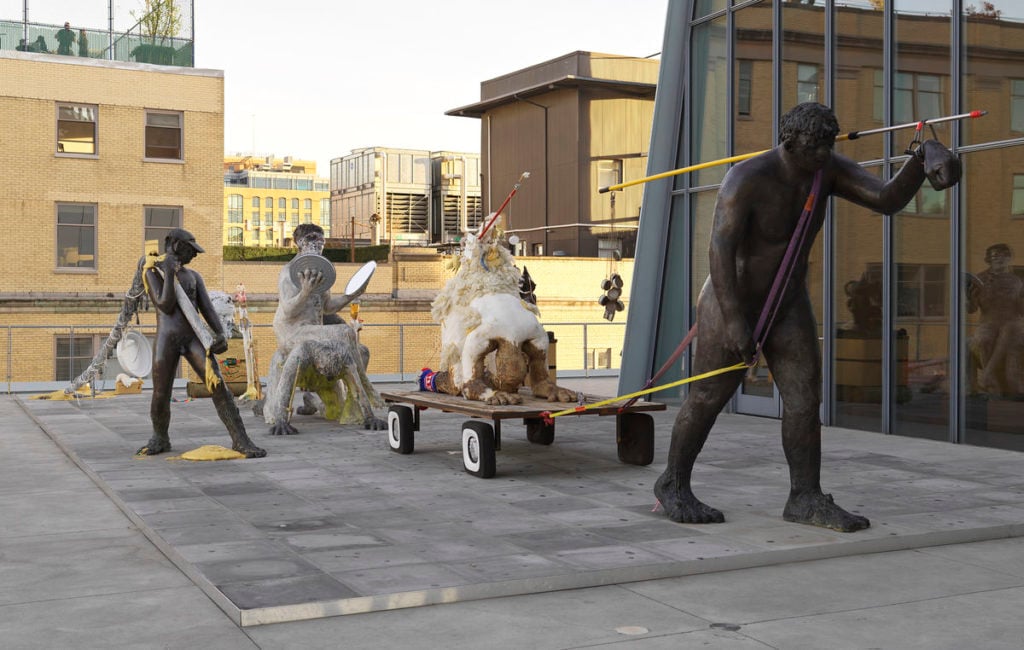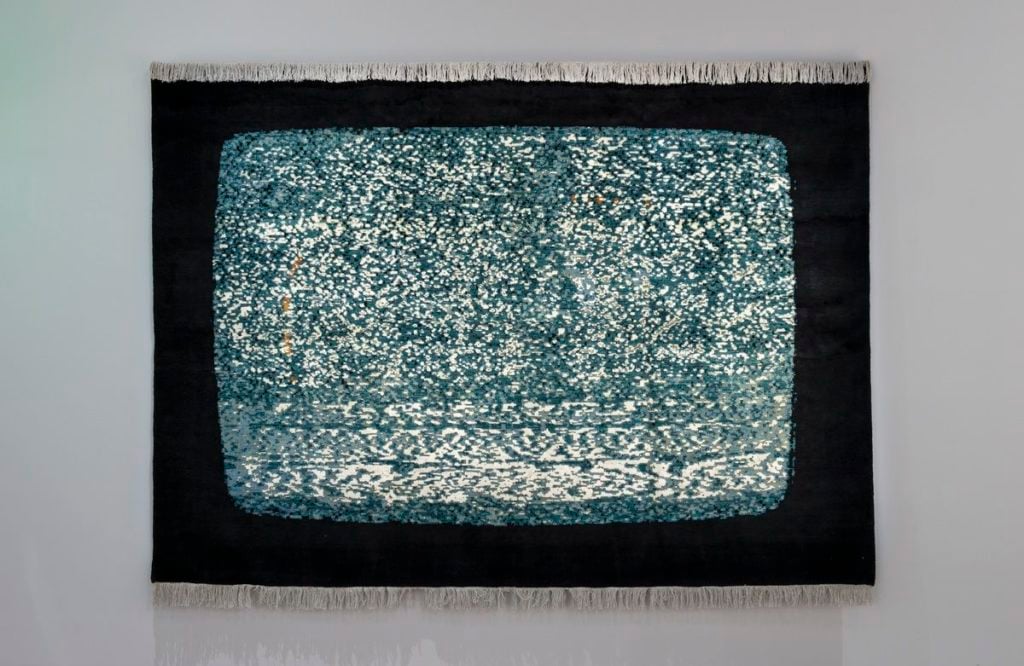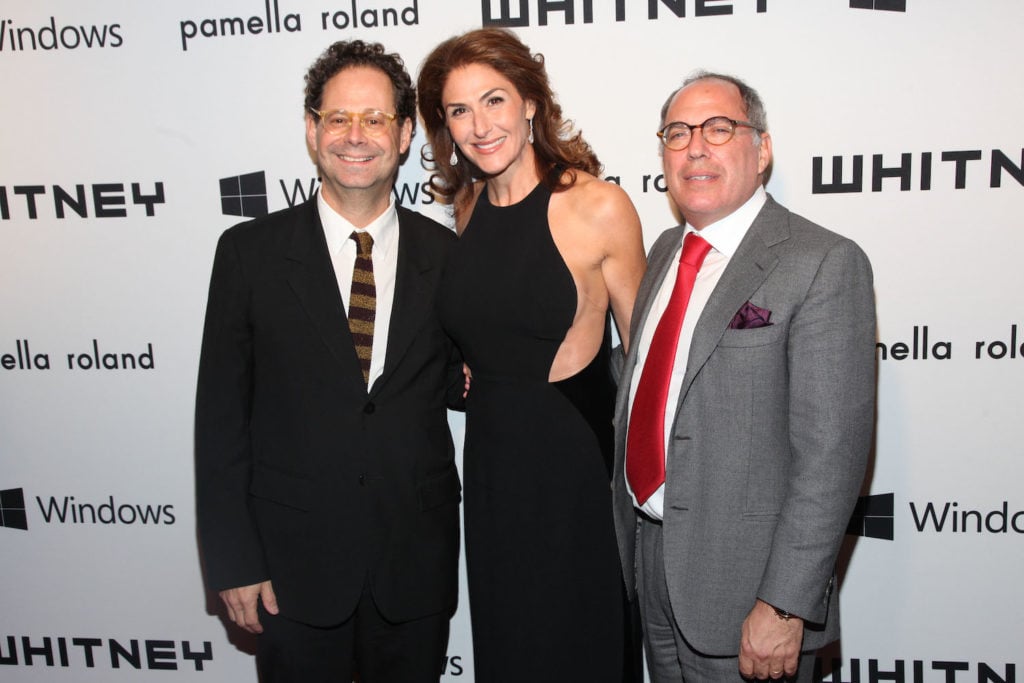People
With Warren Kanders Gone, the Eight Whitney Biennial Artists Will Keep Their Work in the Show After All
Prominent works by Nicole Eisenman, Nicholas Galanin, and others will remain in place.

Prominent works by Nicole Eisenman, Nicholas Galanin, and others will remain in place.

Eileen Kinsella

Eight artists in the Whitney Biennial have reversed course on a recent request to withdraw their works from the show following news this morning that Whitney Museum board vice chair Warren B. Kanders had resigned, effective immediately. The moves come after months of protest and controversy due to Kanders’s role as CEO of Safariland, a producer of munitions for police and military forces, including tear gas that has been used on migrants at the US border.

Nicholas Galanin, White Noise, American Prayer Rug (2018). Image courtesy the artist. Photo: Craig Smith.
“We will no longer request removal of our work following today’s announcement,” said artist Nicholas Galanin, who was part of a group of artists alongside Korakrit Arunanondchai, Meriem Bennani, and Nicole Eisenman who requested their work be removed in a letter to the show’s curators on July 19. The request came one day after an essay by Hannah Black, Ciarán Finlayson, and Tobi Haslett titled “The Tear Gas Biennial” appeared in Artforum, renewing the call on artists to boycott the Whitney.
Over the next few days, three more artists—Eddie Arroyo, Agustina Woodgate, and Christine Sun Kim, followed by research agency Forensic Architecture—also announced that they would request the removal of their works. (This morning, Forensic Architecture also uploaded its contribution to the biennial—a video documenting the use of tear gas and bullets linked to Kanders in state violence—to its website, making it publicly available for free.)

Whitney Museum director Adam Weinberg, with Allison Kanders and Warren Kanders at the 2012 Whitney Gala. ©Patrick McMullan. Photo by A. De Vos/PatrickMcMullan.com.
The museum had previously stated that it would grant the artists’ request. The Whitney’s director, Adam Weinberg, said the museum “respects the opinions of all the artists it exhibits and stands by their right to express themselves freely.” As the museum worked out logistics with the artists, the works—which included large-scale sculptures and installations on the museum’s terrace—remained in place. Now, a Whitney spokesperson confirms, they will remain there.
The museum released a statement today acknowledging Kanders’s resignation and thanking him for his service to the Whitney. Kanders’s wife, Allison, also resigned as co-chairwoman of the museum’s painting and sculpture committee. Weinberg thanked them both for their “unwavering commitment” to the institution and said that “as Director, I am very grateful.”
Kanders has been a trustee since 2006, and has also served as vice president and vice chairman of the museum, as well as a member of its executive committee. Together, Warren and Allison Kanders have donated more than a dozen works to the Whitney, and led multiple fundraising campaigns.